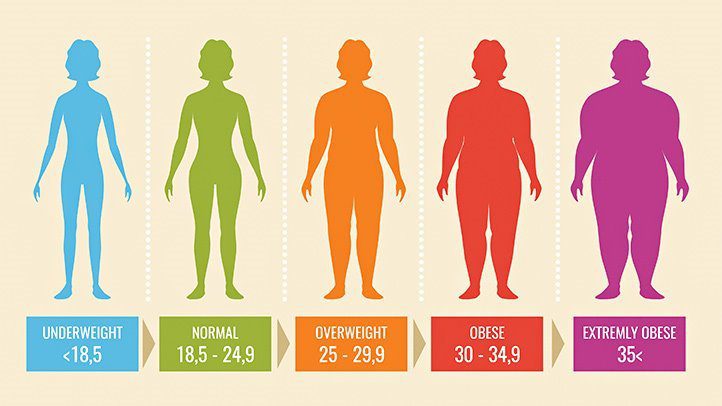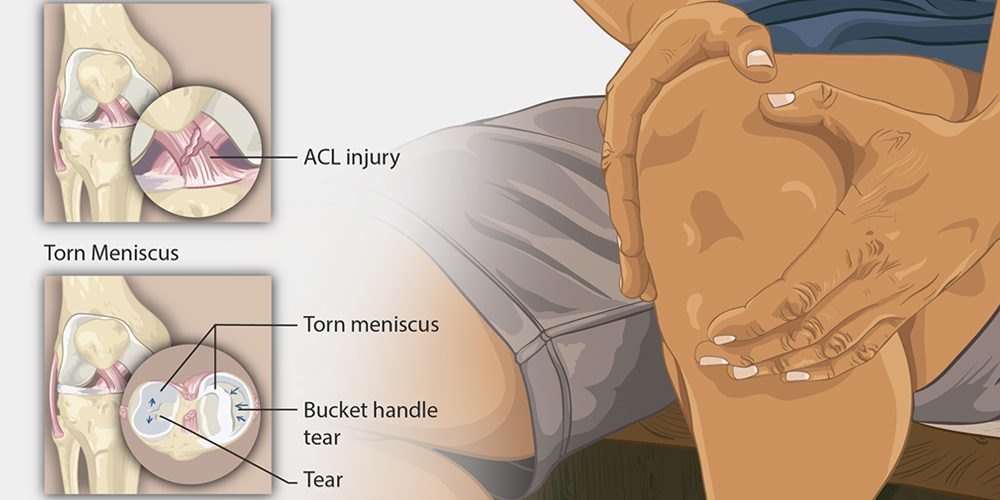Everyone wants to look their best, right? You might be the type to visit the gym, or just to eat well and take the occasional family walk. Whatever your style happens to be, it’s important to you that you feel – and look – healthy.
But being healthy and looking fit doesn’t necessarily just have to do with how you fit in your clothes. In fact, your weight and your size are only two measurements of your fitness and health.
The last time you went to the doctor, she took your height and your weight. Then, she gave you a number -your body mass index. Body mass index is not only a good indication of how healthy your weight is now, but could also be an indicator of health issues in your future! Let’s take a look.
Contents
What is Body Mass Index?
Body mass index, also referred to as BMI, is your weight to height proportion. It’s actually very easy to fine – all you’ll need are your measurements and a calculator.
First, find your height in meters. Stand with your heels, your bottom and your shoulders touching the wall. Then, have a friend measure your height at the crown of your head, in meters. The easiest way to do this is with the tape measure in your toolbox.
Then, you’ll need your weight in kilograms. If you just have a scale which measures pounds, that’s okay. You can easily convert pounds to kilograms – just multiply your weight in pounds by .45. So if you’re 150 pounds, you weigh 68 kilograms.
Take your weight in kilograms and divide it by your height in meters. Then divide the answer by your height in meters again. That’s your BMI!
Healthy BMI Range
Doctors and scientists, over the years, have discovered that there’s a healthy range for body mass index. If your BMI is between 18.5 and 24.9, that’s a healthy range. So what about numbers that fall outside of the range?
If your BMI is lower than 18.5, you’re considered underweight. If it’s between 25 and 29.9, you’re considered overweight. A BMI that’s 30 or higher is considered obese. Additionally, a BMI over 40 is considered morbidly obese.
We’ll talk about what this means in just a minute. For now, though, there are a few things you need to remember:
- The body mass index ranges are only applicable to adults 20 years old and older
- BMI works for kids aged 2 to 19, but they have a different chart to follow, called a percentile graph
- If you’re pregnant, don’t worry about your BMI. Instead, speak with your doctor or midwife
So, now that you know your body mass index, it’s time to figure out what your BMI means for your current – and future – health.
What Can BMI Tell You?
It’s not, by any means, an exact science. And falling within a healthy range for BMI certainly doesn’t preclude you from disease. However, if your BMI is within the healthy range, you’re significantly less likely to be diagnosed with a number of serious health problems.
People who are overweight or obese are at a much higher risk for the following health issues:
-
Heart attack
-
Stroke
-
Type 2 diabetes
-
Certain types of cancers
-
Gestational diabetes
-
Preterm birth
-
Reproductive problems
-
Arthritis
-
Depression
-
Suicide
Pretty serious, right? And those are just a handful of the possible diagnoses. Now, let’s look at people who are underweight.
If your BMI is under 18.5, you’re at risk for:
-
Anemia
-
Malnutrition
-
Complications in pregnancy
-
Osteoporosis
-
Brittle bones
-
Fertility problems
Needless to say, there’s a lot at risk if you don’t fall within a healthy range for body mass index.
People who are classified as morbidly obese are either 100 pounds over the ideal weight for their height or have a body mass index higher than 40. Morbidly obese patients may find that bariatric surgery is an option. In some cases, this may be the most efficient, effective way to get down to a healthier BMI.
In all cases, if you fall outside the healthy range for BMI, chat with your doctor! Together, you can come up with a great way to lose (or gain) weight that fits your lifestyle and your health considerations.
Does a Healthy BMI Mean I Won’t Get Sick?
Nope, nope, nope. A healthy body mass index certainly means that you’re less likely to suffer any of the health conditions mentioned above. But, as stated, it won’t preclude you from illness.
As you know, there are diseases which strike without warning. Weight isn’t the only factor that comes into play. Your lifestyle, your genes and even the foods you eat may have an impact on your health.
That having been said, keeping your body mass index in the healthy range is one of the best ways to ensure that you lower your risk of serious and life-threatening diseases. Taking steps today to keep your BMI in check can mean a much, much healthier you tomorrow.
Tips for Maintaining a Healthy Body Mass Index
Keeping your body mass index in the healthy range doesn’t have to mean hours at the gym and training for triathlons. In fact, it can be pretty easy to do! To put it simple, making conscious and healthy choices about your lifestyle, dietary choices and exercise routine can mean the difference between a healthy and an unhealthy body mass index.
Here are just a few examples of how easy maintaining a healthy BMI can be.
1. Drink plenty of water
Water not only helps metabolize your food, but also will make you feel full when you drink a glass before a meal.
2. Walk the extra steps
You’ve heard it before – take the stairs instead of the elevator, or park your car in the furthest space. Those steps add up.
3. Skip the soda
The average soda contains 150 calories. Instead, opt for water with a spritz of lemon, or unsweetened tea.
4. Take a walk with the family
I mentioned it earlier, and it’s a great routine to get into. You’ll burn calories and get some family time in.
5. Get a dog
No, seriously! Walking, playing with and exercising your dog will burn calories – and it’s fun!
Your BMI isn’t the only indicator of your health, but it’s a darn good place to start. If you have any questions about your body mass index, of course, your doctor is available to answer all your pressing questions!
Here are some products that may help you staying healthy:
-
50 %OFF50 %OFF50 %OFF50 %OFF
Pain Relief Foot Compression Socks
Rated 4.43 out of 5$39.99Original price was: $39.99.$19.99Current price is: $19.99. Select options -
38 %OFF38 %OFF38 %OFF38 %OFF38 %OFF38 %OFF38 %OFF38 %OFF38 %OFF38 %OFF38 %OFF38 %OFF38 %OFF38 %OFF38 %OFF38 %OFF38 %OFF38 %OFF38 %OFF38 %OFF38 %OFF38 %OFF38 %OFF38 %OFF38 %OFF38 %OFF38 %OFF38 %OFF38 %OFF38 %OFF38 %OFF38 %OFF38 %OFF38 %OFF38 %OFF38 %OFF38 %OFF38 %OFF38 %OFF38 %OFF38 %OFF38 %OFF38 %OFF
Painless Knee Support Brace
Rated 4.58 out of 5$39.99Original price was: $39.99.$24.99Current price is: $24.99. Select options -
33 %OFF33 %OFF33 %OFF
Heel, Ankle & Achilles Pain Management Socks
Rated 4.57 out of 5$29.99Original price was: $29.99.$19.99Current price is: $19.99. Select options -
54 %OFF54 %OFF54 %OFF
Total Support Orthotic Insoles
Rated 4.71 out of 5$49.99Original price was: $49.99.$22.99Current price is: $22.99. Select options




















3 Responses
Wow.. That’s so nice
Very good information ℹ
hi i skipped the soda now my bmi went from 17 to 16 and i feel a bit ill…